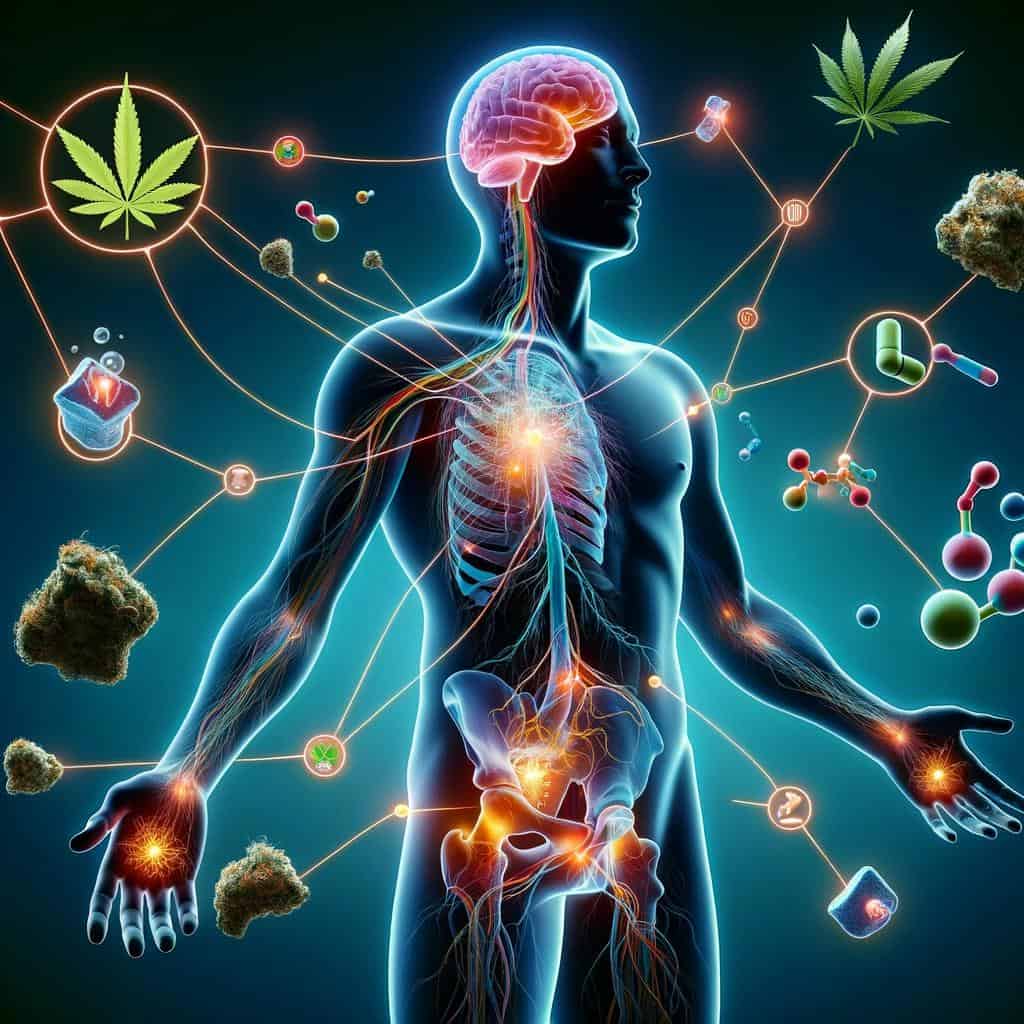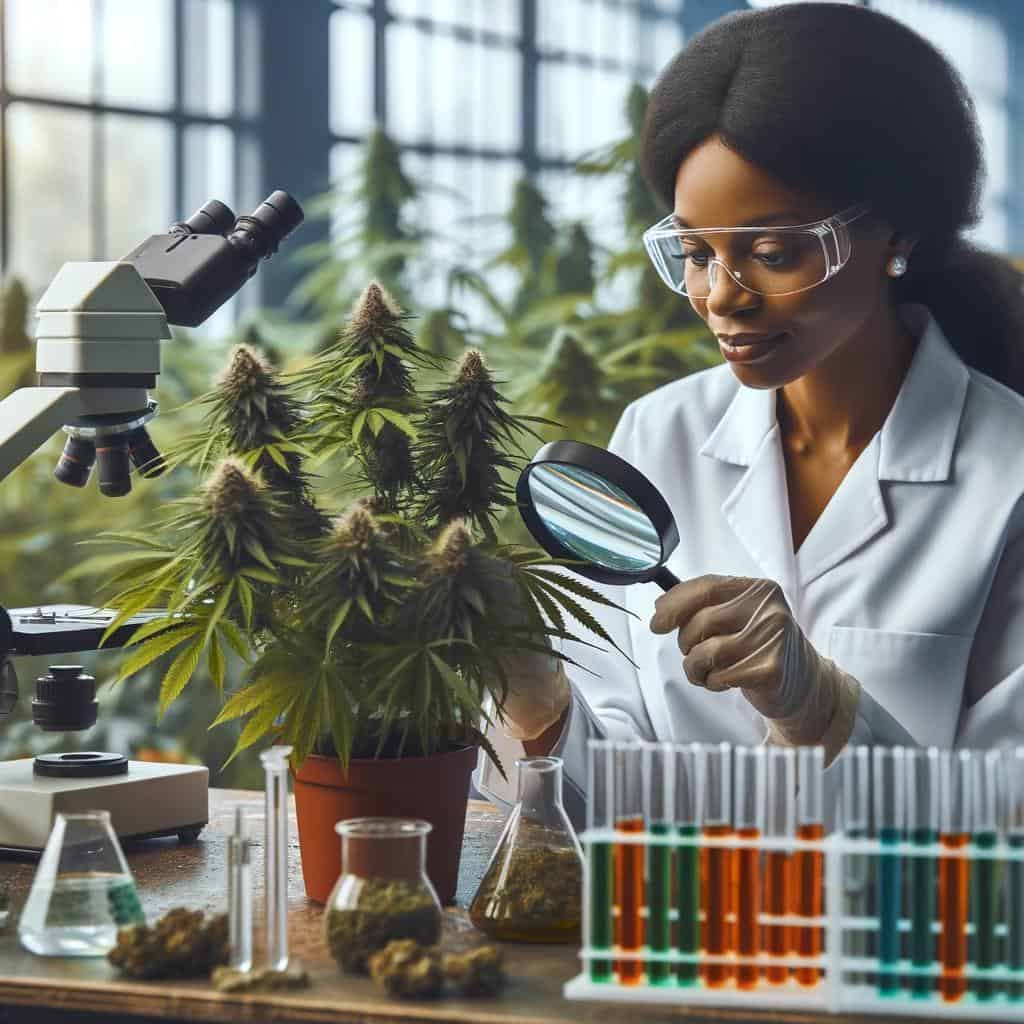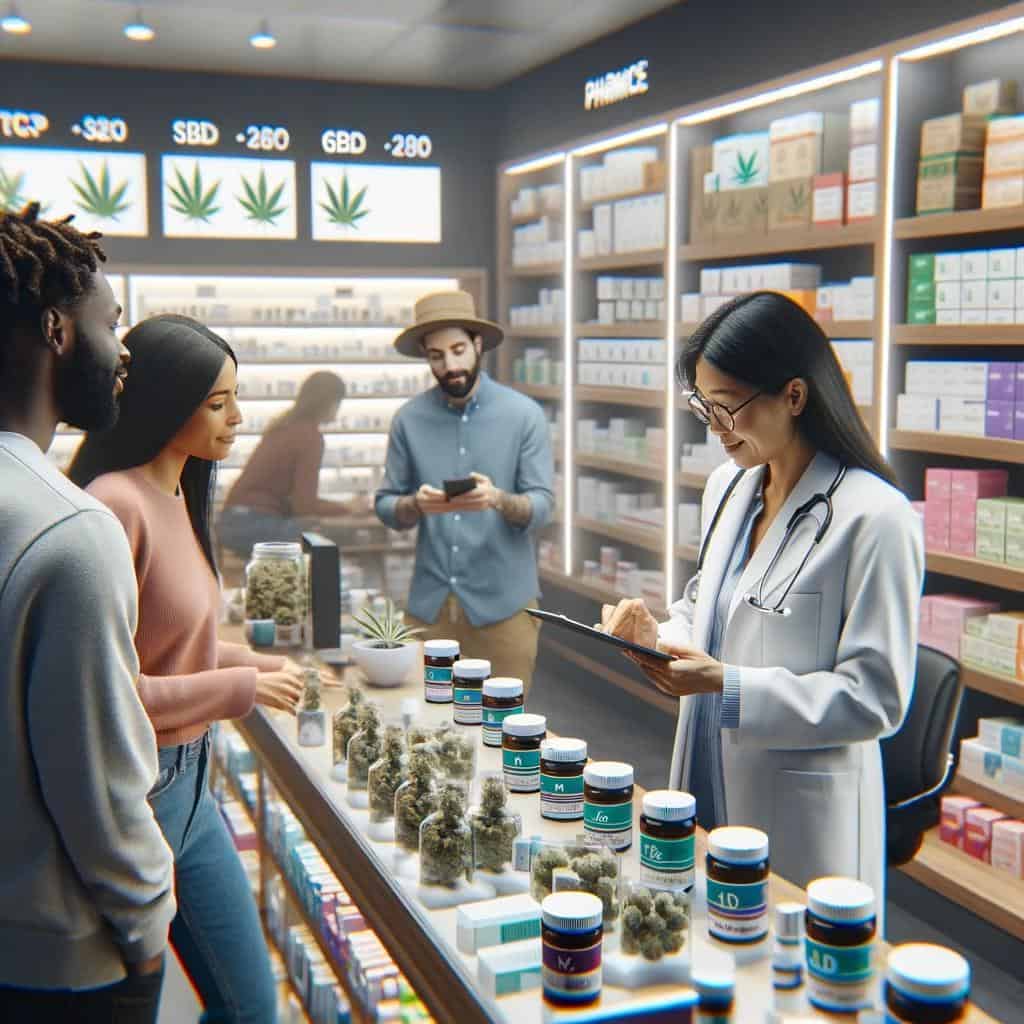- [email protected]
- (619) 304-4004
Since New York’s legalization of medical marijuana in 2021, adults over 21 can possess and use it within defined limits. The Compassionate Care Act regulates its medical use, catering to specific health conditions. These laws mark a significant shift in New York’s approach towards cannabis.
Medical Marijuana in New York

The decriminalization of medical marijuana in New York marks a significant shift in the state’s approach to cannabis use and regulation. Since Governor Andrew Cuomo signed the Marihuana Regulation & Taxation Act (MRTA) on March 31, 2021, New York has joined the ranks of states legalizing cannabis use, including for medical purposes. This act not only legalizes adult-use cannabis but also establishes a comprehensive framework for regulating various aspects of cannabis cultivation, distribution, and use.
Under the MRTA, adults over 21 years of age are allowed to possess and use recreational cannabis, with specific limits on the amount they can carry. The law also stipulates that cannabis can only be purchased at state-licensed dispensaries and outlines clear restrictions on its use in certain situations, such as while operating a motor vehicle or on federal lands. Importantly, the MRTA has provisions for the automatic expungement of records for activities that are no longer criminalized, significantly impacting those with prior convictions.
New York’s medical marijuana program, governed by the Compassionate Care Act, was established earlier in 2014. This program allows patients with specific debilitating conditions to access medical cannabis, following a certification process by registered practitioners. The program also details regulations regarding the possession and use of medical marijuana, including a tax imposed on the gross receipts from sales to patients.
These changes reflect New York’s evolving stance on marijuana, shifting from strict prohibition to a more regulated and accessible approach. This transition towards decriminalization and regulation not only impacts individuals seeking medical marijuana for health reasons but also addresses broader issues related to social justice and economic development within the state.
By understanding the nuances of these laws and their implications, readers can gain a comprehensive view of the current landscape of medical marijuana in New York, reflecting on how these changes may affect their lives or the lives of those around them.
Decriminalization, particularly in the context of medical marijuana in New York, represents a significant shift in legal and social policy.
Decriminalization generally refers to the reduction or elimination of criminal penalties associated with certain acts, in this case, the use and possession of marijuana. In New York, this change has had a profound impact on the medical marijuana landscape.
The legalization of medical marijuana under the Marihuana Regulation & Taxation Act (MRTA) in March 2021 marked a pivotal moment for New York. This law allows adults aged 21 and over to possess and use marijuana within specific limits. It has a dual impact:
In summary, decriminalization in New York has not just altered the legal status of marijuana but also created a ripple effect, influencing social justice, public health, and the economy. The shift from prohibition to regulation reflects a broader societal change in attitudes towards marijuana, especially in its medicinal use.
Decriminalization in New York has revolutionized the medical marijuana landscape, significantly influencing accessibility, legal implications, and economic prospects. The Marihuana Regulation & Taxation Act, enacted in 2021, legalized adult-use cannabis and established a comprehensive regulatory system.
This has greatly expanded access for patients, allowing those with medical conditions to obtain medical marijuana more readily under the Compassionate Care Act.
Additionally, decriminalization has addressed social justice concerns by expunging past convictions for actions now legal, thereby reducing the burden on individuals previously affected by stringent marijuana laws.
Economically, the legal cannabis market in New York is poised to stimulate growth through job creation and tax revenue, with funds earmarked for education and public health initiatives. These changes underscore a significant shift in public policy and societal attitudes towards marijuana, especially in its medicinal form.
Decriminalization in New York, which began in August 2019, has greatly impacted medical marijuana users, particularly in terms of legal implications and accessibility. Under this new law, possession of up to 2 ounces of marijuana is considered a non-criminal violation, subject to fines but not criminal prosecution.
This shift significantly reduces the legal risks associated with marijuana use, particularly for those with valid Medical Marijuana Certification in New York.
Moreover, the expungement of past convictions related to marijuana possession offers a fresh start for many, removing barriers to employment and other opportunities previously hindered by a criminal record. This legal transformation underscores New York’s progressive approach towards drug policy, focusing more on public health and less on punitive measures.
For more detailed information, you can visit the Community Service Society of New York’s page on this topic here.
The decriminalization of medical marijuana in New York, which began in August 2019, has brought significant benefits to various stakeholders in the state.
This development, underpinned by the Marihuana Regulation & Taxation Act (MRTA) and New York’s expungement law, has had a far-reaching impact.
In context, the decriminalization of medical marijuana in New York has brought about substantial changes benefiting patients, society at large, and the economy.
It represents a progressive shift in public health policy and social justice, providing greater access to medical marijuana for therapeutic purposes while reducing the legal and social burdens associated with its use.
For more detailed information, you can explore the Community Service Society of New York’s fact sheet, the Office of Cannabis Management’s FAQs, and the Marihuana Regulation and Taxation Act on the New York State website.
Post-decriminalization of marijuana in New York, several challenges persist that impact various stakeholders in the state’s cannabis industry.
These challenges highlight the complexities involved in transitioning from a prohibited to a regulated market. They underscore the need for a balanced approach that addresses the needs of all stakeholders, including growers, retailers, and consumers.
Effective communication and collaboration between the state’s Office of Cannabis Management, regulatory bodies, and the industry participants are crucial for resolving these challenges and fostering a sustainable and equitable cannabis market in New York.

The decriminalization of marijuana in New York has opened new avenues for medical research, particularly in the field of cannabis. This shift in the legal landscape has facilitated a more conducive environment for scientists to explore the potential medical benefits of marijuana and its compounds.
One of the significant impacts of decriminalization is the increased focus on cannabis research. With the legal barriers lowered, there’s a growing scientific interest in exploring the potential uses and effects of cannabis.
This includes research into modern cultivation and production techniques, as well as the development of new strains with specific desired characteristics. Advanced growing systems like hydroponics and aeroponics, alongside genetic engineering, are being employed to create strains tailored for medical research and applications.
Another critical area of focus is the therapeutic potential of cannabidiol (CBD), a non-psychoactive compound in cannabis. Unlike THC, CBD doesn’t produce a “high” and is being studied for its potential in treating conditions like depression, anxiety, PTSD, Alzheimer’s disease, and pain.
Research on CBD also extends to its use in treating substance use disorders, with ongoing clinical trials assessing its efficacy in treating various forms of addiction.
Minor cannabinoids, which are present in smaller amounts in the cannabis plant, are also gaining attention. These include compounds like cannabinol and cannabigerol, which have shown potential benefits for conditions such as neuropathic pain, neurodegenerative diseases, epilepsy, cancer, and skin disorders. While the preliminary research looks promising, more extensive clinical trials are necessary to fully understand the medicinal benefits of these minor cannabinoids.
Additionally, researchers are exploring new and improved delivery systems for cannabis-based medicines. Traditional methods like smoking can be harmful and may not provide consistent dosing. Innovations in this area include sublingual formulations, the use of nanotechnology for drug delivery, and transdermal patches. These new methods aim to make cannabis products more effective, safer, and provide consistent dosing. Here
The Medical Marijuana and Cannabidiol Research Expansion Act signed by President Joe Biden in December 2022 has further facilitated cannabis research. Despite marijuana’s classification as a Schedule I substance, this legislation has eased the process for conducting trials and developing new FDA-approved drugs that use marijuana or CBD. It represents a significant advancement towards a deeper understanding of cannabis’s medicinal properties and potential therapeutic uses.
In context, the decriminalization of marijuana in New York has been a positive step for medical research in the field. It has catalyzed a growing interest in exploring the various aspects of cannabis, from cultivation techniques to its potential medical applications.
This progress, however, must be complemented with continued efforts in clinical trials and regulatory oversight to ensure the safe and effective use of cannabis-based medicines.
As of 2023, New York’s stance on marijuana decriminalization is quite progressive compared to many other states in the U.S. The state legalized recreational cannabis use with the Marihuana Regulation & Taxation Act in 2021, aligning with a growing number of states moving towards legalization or decriminalization.
However, the approach to decriminalization varies significantly across the U.S., with some states still imposing criminal penalties for possession and others adopting a more lenient approach, often involving fines but no incarceration. This patchwork of laws reflects the diverse attitudes and policies towards cannabis across the country.
States like California, Colorado, and Illinois have also legalized recreational marijuana, while others like North Dakota and South Dakota only recently allowed legal adult use.
For more details on the comparison of marijuana laws across different states, you can visit the Collateral Consequences Resource Center’s website here.

Despite the decriminalization of cannabis in New York, there are still several regulations in place for medical marijuana use. Some of these include:
What is Decriminalization?
Decriminalization in New York refers to the reduction or elimination of criminal penalties for marijuana possession and use.
How does Decriminalization affect Medical Marijuana in New York?
Decriminalization has expanded access to medical marijuana and reduced legal barriers for users and providers.
Is a Prescription Needed for Medical Marijuana?
Yes, a registered healthcare provider must certify patients for medical marijuana use.
Are there Restrictions on Medical Marijuana Use?
Yes, regulations include certification requirements, specific qualifying conditions, and rules for cultivation and use.
Can Anyone Grow Medical Marijuana at Home?
Home cultivation is allowed under the law, subject to certain conditions and possession limits.
What Conditions Qualify for Medical Marijuana?
The list of qualifying conditions has been expanded, allowing physicians to certify patients for any condition they deem may benefit from cannabis use.
Are there Legal Protections for Medical Marijuana Users?
Yes, the law includes protections against discrimination and measures for workplace safety.
Has the Medical Marijuana Program Changed?
Yes, it has expanded to include more qualifying conditions, increased supply limits, and removed certain fees.
The decriminalization of marijuana in New York has significantly altered the landscape for medical marijuana, enhancing access and reducing legal risks for users. The state continues its medical marijuana program under the Marijuana Regulation & Taxation Act (MRTA), expanding the list of qualifying conditions and removing state fees for patients.
Despite legalization, regulations remain, requiring certification from registered cannabis doctors for the purchase and use of medical marijuana. These changes reflect New York’s progressive stance on cannabis, balancing medical needs with legal and social considerations.
https://www.health.ny.gov/regulations/medical_marijuana/
https://www.drugpolicy.org/issues/marijuana-legalization-and-regulation

A1 Marijuana Doctors is an online platform, that connects marijuana patients to marijuana doctors in their state.

A1 Marijuana doctors is an online platform that connects medical patients to medical marijuana doctors. We offer a quick & easy way to apply for a medical marijuana card in all legal states.
Social Links
Contact Us
Quick Links
Trusted By




This website does not sell medicine nor controlled substances. It is a network of doctors & nurse practitioners, not a pharmacy / dispensary.
Copyright ©2023 A1 Marijuana Doctors. All rights reserved.